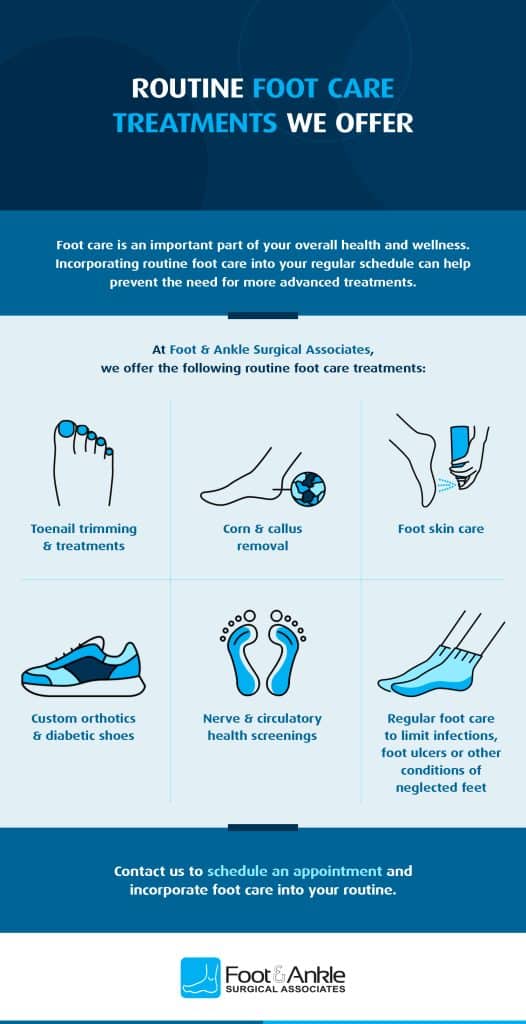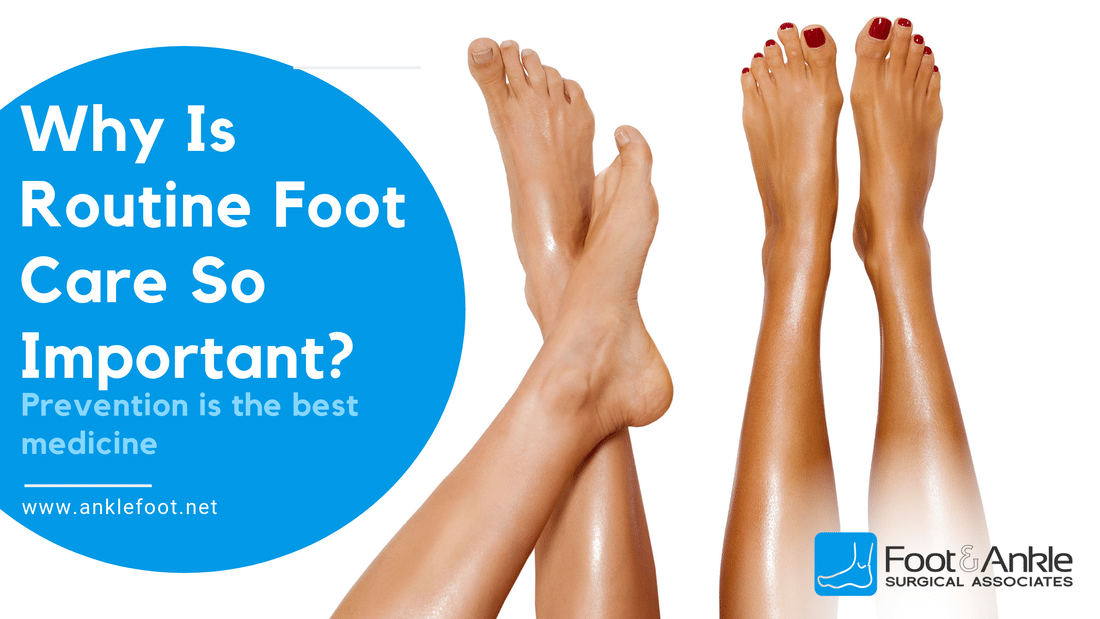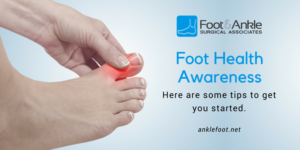You know what they say: “An ounce of prevention is worth a pound of cure.”
To be honest, though, we’re not quite sure it’s true. You see, according to the CDC, roughly half of Americans have been diagnosed with a chronic illness considered preventable, such as heart disease, cancer, or diabetes. And a full 7 out of 10 deaths in the United States are caused by chronic disease.
So actually, the cliché is totally wrong. An ounce of prevention is worth way, way more than a pound of cure—at least if you value your long-term health, happiness, and independence.
And assuming you do, in fact, value those things, make sure that routine, preventive foot care is on your to-do list. You might not think about your feet all that often, but they really are the foundation upon which your entire body is built. And if they start to break down, the rest of your body won’t be far behind.
In recognition of this fact—and also because it’s National Safety Month—let’s explore this topic a little further.
Why Routine Foot Care Is So Important
Let’s use an analogy here.
If you happen to own a car, you probably know how important it is to do the following two things faithfully:
- Conduct regular, routine inspections and maintenance at scheduled times. That includes regular oil and oil filter changes, inspecting fluids, checking the tires, and getting the car serviced by a qualified mechanic at least every year or two.
- Address any odd noises or performance issues right away, as soon as possible after you notice them.
The logic here is pretty simple. Small problems don’t tend to stay small for long. Today’s minor fault could be a major safety and reliability hazard if ignored. Identifying and fixing a bad gasket or worn-down brake pad early, for example, can prevent extensive damage to your engine or mechanical components and significantly extend the lifespan of your car.
Well, your feet really aren’t so different.
For example:
- Ignoring the dull aches and pains of an overuse sports injury like stress fractures, plantar fasciitis, and tendinitis can cause those injuries to become chronic—or even worsen to the point where they become full fractures or ruptures.
- Seeing us when your toes are only just starting to drift out of alignment—as the case might be for an early bunion or hammertoe—gives you more options to manage the condition conservatively, rather than wait until surgery is the only remaining option.
- Failing to act when you start noticing intermittent tingling sensations in your toes could set you down the path to peripheral neuropathy or foot ulcers.
- Even something as seemingly minor as keeping your toenails neatly trimmed can make a bigger difference than you might realize. Let them grow too long, or cut them too short or improperly, and you could wind up with painful (and possibly infected) ingrown toenails!

Trust Foot & Ankle Surgical Associates for Your Routine Foot Care Needs
Advanced care options like reconstructive surgery may get all the attention. And yes, we’ve very proud of all the cutting-edge treatments and latest-and-greatest protocols our team can provide.
But we’re just as happy helping patients of all ages prevent the need for more advanced treatments by offering the absolute best in routine, preventive care!
That includes services such as:
Regular toenail trimming.
This is a particularly valuable service for seniors, those with especially thick toenails, or those with disabilities that make toenail trimming difficult. This can significantly reduce your risk of developing ingrown or fungal toenails.
Dealing with corns and calluses.
These skin problems can be frustrating and sometimes painful, but attempting to remove them yourself can be dangerous and risk infection. We’ll treat them professionally in a safe environment.
Other skin care services.
This includes wart removal, soothing cracked heels, dealing with a stubborn case of athlete’s foot or eczema, etc.
Custom orthotics.
The ultimate in preventive care, custom orthotics provide extra cushioning and support to compensate for any mechanical or gait abnormalities your feet may have. This can greatly reduce your ongoing risk of developing foot pain.
Diabetic shoes.
If you have diabetes, you may greatly benefit from a pair of diabetic shoes. These offer extra depth to accommodate custom orthotics, as well as other handy features to reduce the risk of foot ulcers.
Nerve and circulatory health screenings.
Particularly important if you have diabetes. Often the early warning signs of peripheral neuropathy or peripheral vascular disease may be detectible via screening tests long before you notice symptoms. Identifying them early gives you time to prevent them from worsening.
If you have diabetes, we strongly recommend you get a comprehensive foot checkup at least once per year.
If you don’t have diabetes and haven’t gotten a full check-up in several years—or maybe ever—it’s still a wise decision to come in, especially if you’ve experienced any recent symptoms of foot pain. Your feet can reveal a lot about your overall health!
And with six locations conveniently spread throughout Tacoma, Olympia, and the surrounding area, there’s sure to be a clinic near where you live or work.
To schedule any appointment at any of these locations, just give us a call at (360) 754-3338. You can also request an appointment using our online contact form.





